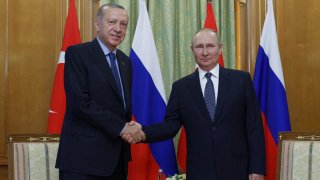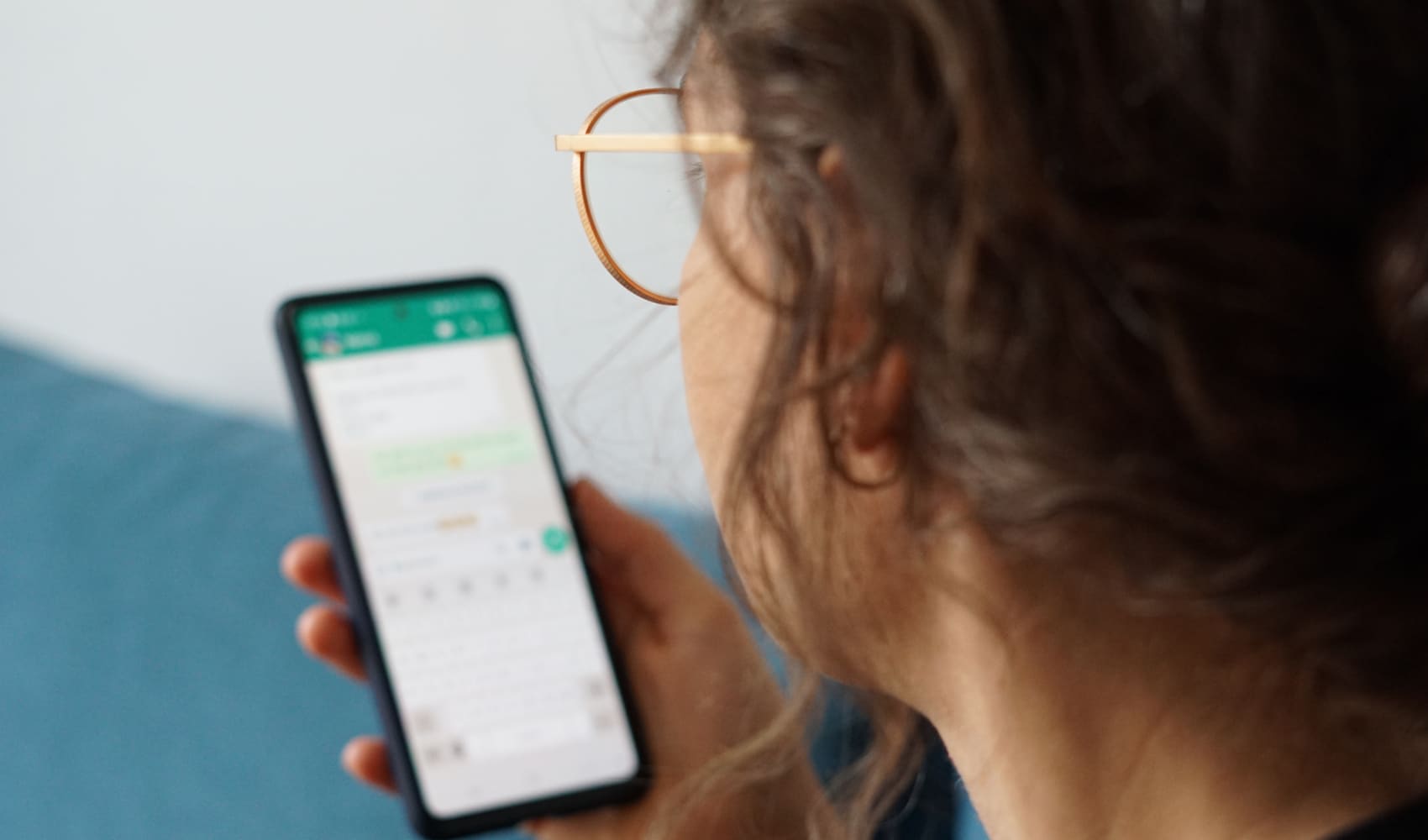
- Turkey's historical election is highly consequential for its population of 85 million, in terms of the future of the country's democracy, economy and foreign relations.
- It's also deeply significant for many parts of the world beyond Turkey's borders.
- President Recep Tayyip Erdogan leads a country that is home to NATO's second-largest military force, but also has a friendly and growing relationship with Russia's Vladimir Putin — making many Western officials uneasy.
Turkey on Sunday voted for another five years of the leadership of Recep Tayyip Erdogan, the powerful, nationalist president who now enters his third decade in power.
Russian President Vladimir Putin was among the leaders that congratulated Erdogan on his win on Monday, calling him a "dear friend," according to the Kremlin.
Get top local stories in Southern California delivered to you every morning. >Sign up for NBC LA's News Headlines newsletter.
Turkey's historical election is highly consequential for its population of 85 million, in terms of the future of the country's democracy, economy and foreign relations. But it's also deeply significant for many parts of the world beyond Turkey's borders.
"Turkey is a vital, vital NATO ally for the United States and for the other NATO partners," David Satterfield, former U.S. ambassador to Turkey, told CNBC just before the final presidential vote. Turkey has been a member of NATO since 1952, boasts the alliance's second-largest military after the U.S. and houses 50 American nuclear warheads and a major air base used by NATO forces.
It's a manufacturing powerhouse at the crossroads of Asia and Europe, as well as an important agricultural exporter for many countries around the world. Turkey also hosts more than 4 million refugees.
Money Report
More recently, Erdogan's government is playing a leading diplomatic role between Russia and Ukraine and mediating the crucial Black Sea grain deal, which unlocks vital Ukrainian produce exports blocked by Russia's full-scale invasion.
Erdogan has also stood in the way of some of the major goals of Turkey's Western allies, such as aggressively pushing back on Russia for its war in Ukraine, and allowing Sweden into the NATO alliance. Erdogan's friendly relationship with Putin and refusal to impose sanctions on Russia, as well as his government's purchase of Russian weapons systems, makes many Western officials uneasy.
Putin, in his congratulatory message Monday, praised Erdogan's efforts to "conduct an independent foreign policy," according to his spokespeople. "We highly appreciate your personal contribution to the strengthening of friendly Russian-Turkish relations and mutually beneficial cooperation in various areas," he said.
With Erdogan at the helm of such a strategically vital country for a fresh new presidential term, many are asking: what does this mean for NATO and Western geopolitical goals?
A threat to NATO cohesion?
The outlook is mixed among political and economic analysts inside and outside of Turkey whether Erdogan is bad news for the future of NATO.
Mike Harris, founder of advisory firm Cribstone Strategic Macro, believes the Turkish strongman's extended rule is decidedly negative for the 74-year-old alliance.
"Putin clearly wants NATO to fragment, and Erdogan in charge increases the likelihood of NATO fragmenting," Harris said after the election's first round in mid-May. He pointed to Erdogan's staunch refusal to cut ties with Putin and to his frequent criticism of Western governments.
But Turkey has so far benefitted significantly from its commitment to an independent foreign policy, when it comes to Russia.
Turkey's trade with Russia doubled to $68.19 billion in 2022 from $34.73 billion in 2021, according to the Turkish Statistical Institute. Turkey now receives 7% of Russian exports, up from 2% in 2021. Russian tourists and expatriates, including billionaire oligarchs escaping sanctions, have poured into the country as their options for travel became severely limited. Earlier in 2023, Putin waived the cost of Russian gas exports to Turkey, a move broadly seen as an effort to help Erdogan's election chances.
This begs the question of what leverage NATO allies might try to use to change that, if any.
While maintaining good relations with Russia, Turkey has simultaneously supported Ukraine with weapons and aid — including the powerful and deadly Turkish-made Bayraktar drones — and facilitated prisoner swaps between the warring countries, which Western officials have praised.
Will Turkey allow Sweden into NATO?
Many analysts expect that Erdogan's opposition to Sweden joining the alliance was largely a strategy to gain pre-election clout and that his stance will change following his victory. Turkey takes issue with Sweden over what it says is the country's support of Kurdish groups that Ankara considers to be terrorists.
For Timothy Ash, an emerging markets strategist and Turkey expert at BlueBay Asset Management, a continued pushback against NATO goes against Turkey's best interests.
"If Erdogan continues to stall sign off (on Swedish NATO membership), I expect a major crisis in relations with the West," he said Monday.
"Because of pressure on the lira I expect Erdogan to compromise on Sweden's NATO bid," Ash said, referring to the Turkish currency that's lost some 80% of its value against the dollar in the last five years, largely due to unorthodox monetary policies directed by Erdogan.
"He extracted whatever political capital he could from this (Sweden pushback) pre-election, now he has won there is only downside by delaying the inevitable," he added. "So I expect Sweden to get NATO membership at the NATO summit next month."
Harris agrees. "He's already achieved his objective," he said of Erdogan. "So is Sweden going to get into NATO? I would put money on that, guaranteed. Why would he fight that battle anymore? That was an election issue."
Already, Sweden's foreign ministry on Monday said the Swedish and Turkish foreign ministers will meet "soon" to discuss Stockholm's potential accession to NATO, according to Reuters.
CNBC has contacted the Turkish presidency's office for comment.
Russia relationship 'vital'
Ultimately, Erdogan's foreign policy decisions will be made with the intent to primarily benefit Turkey, not its Western allies. In the words of former U.S. ambassador to Turkey David Satterfield, Ankara's relationship with Russia is "vital" — whether positive for NATO or not.
"Turkey has been a critical partner for the NATO alliance and for the broader international coalition opposing Putin's war in Ukraine ... I think 'supporting Russia' is not the term I would use," Satterfield told CNBC's Dan Murphy on Friday. "Turkey has a vital relationship with Russia, its relationship that has generated both good and bad for Turkey in the past," he said.
"We welcome, welcome the dialogue that President Erdogan has with President Putin, when the subject is stabilization, when the subject is the ability to access grain and other products through the Black Sea from Ukraine, that has been extremely useful and extremely important," the ambassador said.
"And we do not see this as a pivot or an alignment of some kind with Russia. We see it as the conduct of necessary relations with a very important, for good or ill, neighbor of Turkey."






